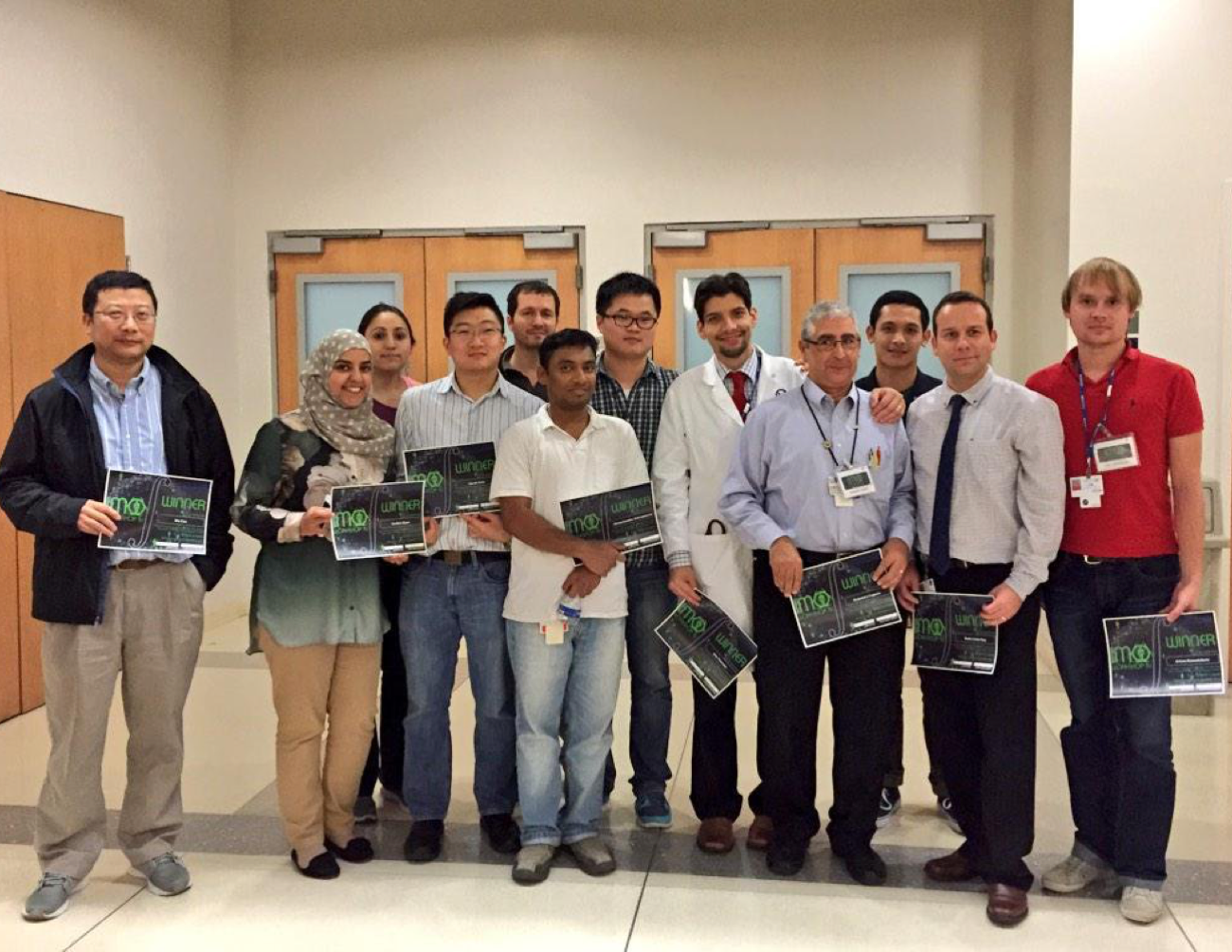IMO 4: Viruses in Cancer

Viruses in Cancer
For the first time the IMO workshop is jointly run with Moffitt's Center for Infection Research in Cancer (CIRC). Infection is the cause of nearly two million cancer cases, accounting for 18% of the worldwide cancer burden. Each year this number increases as new cancer-causing infectious agents are identified. Most infections can be prevented with vaccines and treated with antivirals and antibiotics, providing an extraordinary opportunity to eradicate certain cancers. Advancements in this arena have already been made: in groundbreaking work, researchers determined not only a connection between cancer and a specific virus, but successfully developed a vaccine. Today, with just one vaccine, we can prevent four different types of cancer affecting both women and men. As evidenced through this discovery, the possibilities within the field of infection research are global in scale. The central theme of our workshop this year will be to understand the role of viruses (and infection in general) in cancer.
And the winner is...
Winning team: specific aims
"Forecasting H. Pylori-associated gastric disease progression to improve screening modalities for early gastric cancer intervention"
Rationale
Gastric cancer is the fourth most common cancer, but the second most frequent cause of cancer deaths worldwide. More than 70% of gastric cancers are caused by Helicobacter Pylori, a gram-negative bacterium whose antigens induce an inflammatory response causing gastritis, ulceration, and ultimately facilitate progression to cancer. H. Pylori increases gastric cancer incidence by a factor greater than 10. Two major types of gastric cancer exist: one originating in the gastric cardia and not related to H. pylori, the other arising distal to the cardia and associated with H. pylori infection. H. pylori infection is most common in the Asian and Latin American population and transferable by contact.
Tampa Bay’s diverse patient composition with large Asian and Hispanic populations demands improved understanding of H. pylori-associated gastric disease progression and screening programs tailored to individual patients in these minority cohorts. Progress in integrated mathematical oncology, a powerful approach that iteratively utilizes experimental and clinical data to build calibrated quantitative models, makes this analysis approachable.
The virulent form of H. pylori secretes toxins (Cag A, Vac A) which (i) cause genetic mutations in gastric stem cells, or (ii) elicit a robust inflammatory reaction, responsible for the recruitment of bone marrow derived stem cells and induction of epithelial to mesenchymal transition, or (iii) both. A mechanistic understanding of disease progression and scientifically informed screening schedules will result in better patient follow up and early intervention resulting in better patient prognosis and reduced healthcare costs.
Hypothesis
We hypothesize that stem cells play a pivotal role in the progression from normal to metaplasia, dysplasia, and carcinoma. The fraction and spatial distribution of stem cells in gastric biopsies may then serve as a prognostic factor for disease progression and suggest meaningful screening intervals.
Specific Aim 1
Develop a mechanistic mathematical model of gastric crypt homeostasis and H. Pylori induced inflammation and facilitation of carcinogenesis. Calibrate the model with stem cell numbers at different gastric disease stages with retrospective tissue data from H. Pylori-associated disease (Cali, Columbia; n=30) and non H. Pylori-associated disease (Moffitt; n=30) provided by Dr. D. Coppola.
Specific Aim 2
Use the calibrated model to predict patient-specific disease progression dynamics using sequential screening samples from endoscopic gastric biopsies (n=10; Dr. D. Coppola). We will randomize the retrospective data into training and test cohorts to validate the predictability of the disease progression model to suggest personalized screening schedules for early intervention.







